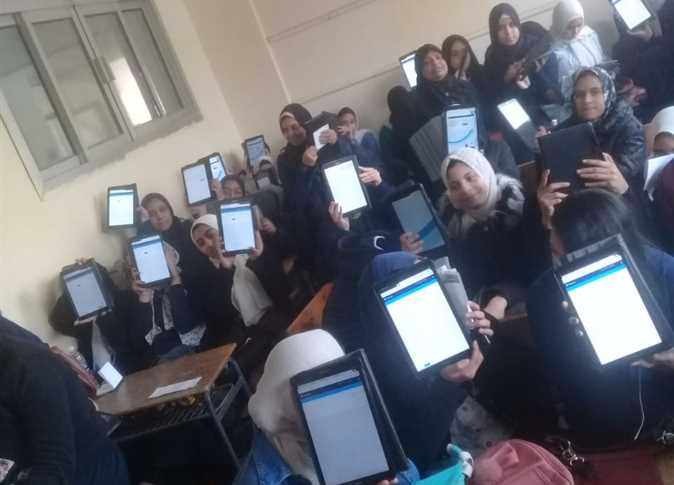Mohammed Al-Batawy
July 15, 2019
The former spokesman of the armed forces, Brigadier General Mohammad Samir, and his wife, Iman Abu Talib, appeared at the celebration of the announcement of the new company Dubci, which plans to compete with Uber and Careem in the passenger transport sector. The celebration photos were deemed by Egyptians to be enough proof that the nascent company is a new arm of the military’s economic empire.
Dubci itself has denied that and issued a statement confirming that it is a coalition of investors, but the statement itself and its wording was a confirmation that the company belongs to the army.
The statement of the company was a military statement, full of the same words and the repeated accusations of the hidden forces of evil, the words security forces always reuse.
Hours after the statement, Brigadier Samir and Iman Abu Talib issued a statement saying that they apologised for taking a position within the company despite their agreement to do so on July 1, and said that they decided to withdraw on July 7 because they were unable to continue in the two positions they had held for a week.
The new company, which is competing with the two private companies Uber and Careem, is seeking to acquire a portion of Egypt’s smart transport cake, which generates billions of Egyptian pounds annually, in a move to boost the Egyptian military empire.
Besides generating billions, the company will provide security forces with a database of its passenger’s movements through which they can monitor activists and opponents.
Uber has previously refused to hand over its user database to security forces, raising speculation that the Egyptian authorities will soon seek to remove its cars from the streets.
With Dubci entering the transport and services sector, the Egyptian Army now has a new arm on top of its existing 20 companies operating in various sectors of the economy.
Areas in which the Egyptian Army competes is with private sector companies such as transport and communication, food and retail, trade, hotels, schools, technology, media, sports and even artistic production.
This economic diversity and comprehensive control of various areas is a qualitative development of the military’s approach, which was previously limited to logistics and food security sectors.
In the telecoms sector, the military pushed the company “WE,” which has dominated the country’s fixed-line networks, with 9 million subscribers.
A few years ago it acquired its fourth license for mobile networks in Egypt at an unfair advantage to companies that do not have state support.
The media marketing sector is also heavily controlled by the army, with “Presentation” enjoying the exclusive rights to broadcast the Egyptian football league, and the rights to sponsor most of its teams. It is on a quest to monopolise several other sports and entertainment events.
The sports media sector is dominated by the military, with ON Sport being funded by the Egyptian Media company, which is a part of the Eagle Capital Investments group, owned by the General Intelligence Service and military commanders.
Time Sport also enjoyed exclusive rights over the African Cup of Nations, which is taking place in Egypt and is trying to compete with Qatar’s sports channel beIN SPORTS.
The hotel sector also witnessed the rise of Almasa and Tulip Hotels, which have exclusive rights to host events and conferences organised or sponsored by the Egyptian state.
In the mobile sector, the military dominated the SICO franchise, which specialises in the manufacture of smart phones. Cairo imports most of the components of these phones from China, while the rest of the components are produced domestically. This phone is usually marketed as the first Egyptian phone.
In the art production sector, Synergy and Watch It digital platform were launched swiftly, one of which appeared as the front of the Eagle Capital Investments group owned by the Egyptian General Intelligence, reaching a near total dominance of the Ramadan drama market last year.
Synergy was launched amid reports of restrictions on all competing companies, which caused anger and resentment among Egyptian actors, producers and directors.
Watch It quickly gained exclusive rights to transfer productions electronically to the masses and then took full control of Maspero, which includes all the artistic and programmatic production from Egypt since the 1950s.
Watch It has announced that it has recently been awarded exclusive digital rights to the Egyptian Premier League for four years.
In addition, military factories – the most famous of which is military factory 99 – produce household appliances, metal utensils, cars, as well as Safi Company’s bottled water.
The army also has institutions for the import of meat and poultry, some of which have recently been established, making it the number one importer of these foodstuffs.
The army’s companies and their institutions are not subject to the state tax or fees system, and most of them use conscripts from the army so they don’t have to pay an additional salary.
Military competition in the economy is rising quickly, and that competition does not seem fair.





Recent Comments